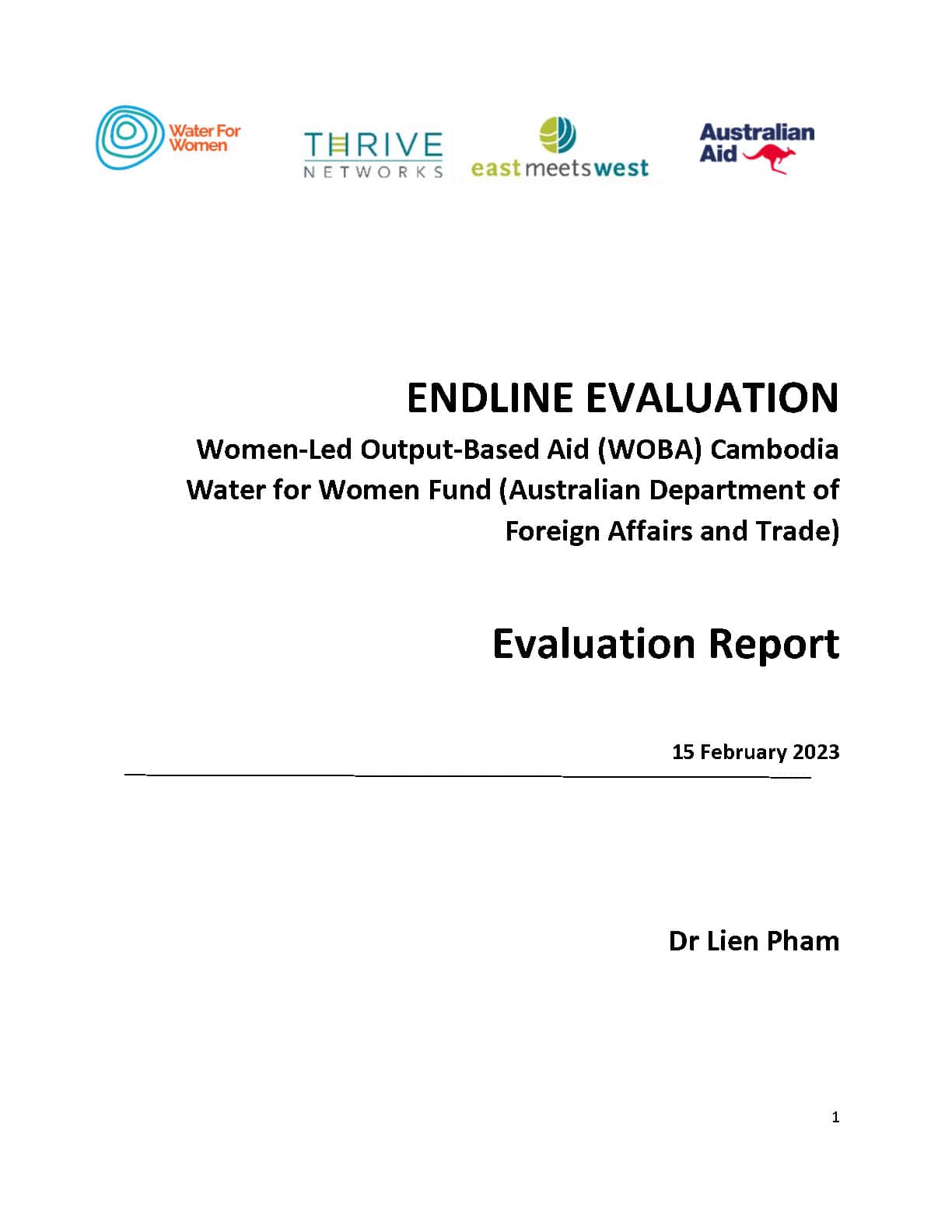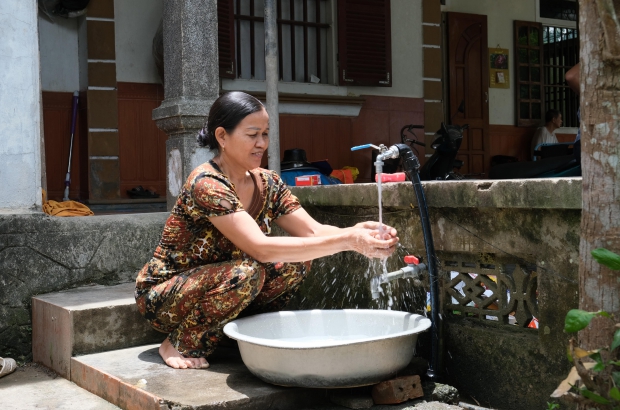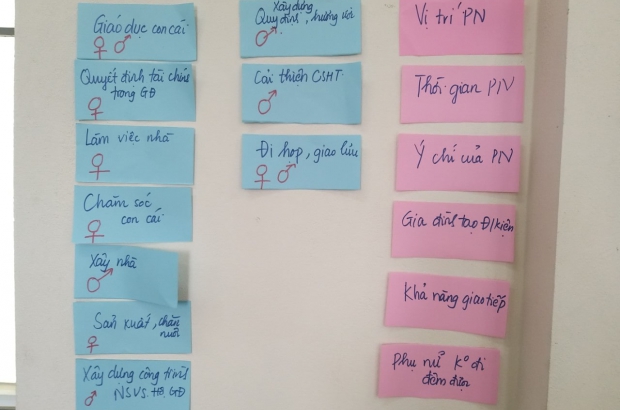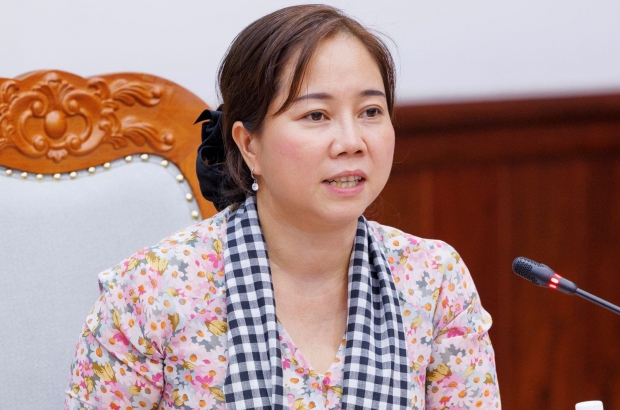
End-line Evaluation Report for Women-Led Output-Based Aid (WOBA) Cambodia
2479
The evaluation report focuses on all aspects of the project programming, including sanitation, piped water connection, climate resilient water safety plan pilot, FSM pilot, menstrual health hygiene training, and other WASH related trainings.
Related News
3103
Opportunities and constraints for women's empowerment in Vietnam rural WASH: A case study of Nghe An province
This learning note presents the case study of Chau Cuong, a commune in Quy Hop mountainous district, Nghe An province in our research on the opportunities and constraints for women’s empowerment in a donor funded WASH project implemented in 5 rural provinces of Vietnam. Focusing on the seven domains of the National Strategy for Gender Equality 2011-2020, the paper offers some implications for policy and practice for improving gender equality and women empowerment in rural Vietnam.
3033
Policy Review of Gender Equality in Vietnam Period 2011-2020
This paper reviews the policy landscape for gender equality in Vietnam. It looks at the legal basis for gender equality, focusing on the objectives and results of National Strategy on Gender Equality for the period 2011-2022. The policy review provides the context for a study on gender equality and women's empowerment in the WASH sector broadly and WOBA Vietnam particularly.
2883
Opportunities and Constraints for Women’s Empowerment in Vietnam’s Rural WASH: 5 Case Studies of WOBA Communes
The Women-Led Output-Based Aid (WOBA) Vietnam is a project designed and implemented by Thrive Networks/East Meets West Foundation (EMW) to address challenges and inequities in Vietnam’s rural water, sanitation and hygiene (WASH) sector. A research study on the opportunities and constraints for women’s empowerment through WOBA Vietnam aims to consider all relevant domains in which women’s empowerment opportunities can arise through. The study aims to capture the gender experiences of women in WOBA from different perspectives: political, WASH work and entrepreneurship, community, households. The study also surmises that women must have the opportunities to engage and empowered as users, managers and change agents in their households, communities, political forums, and businesses.



